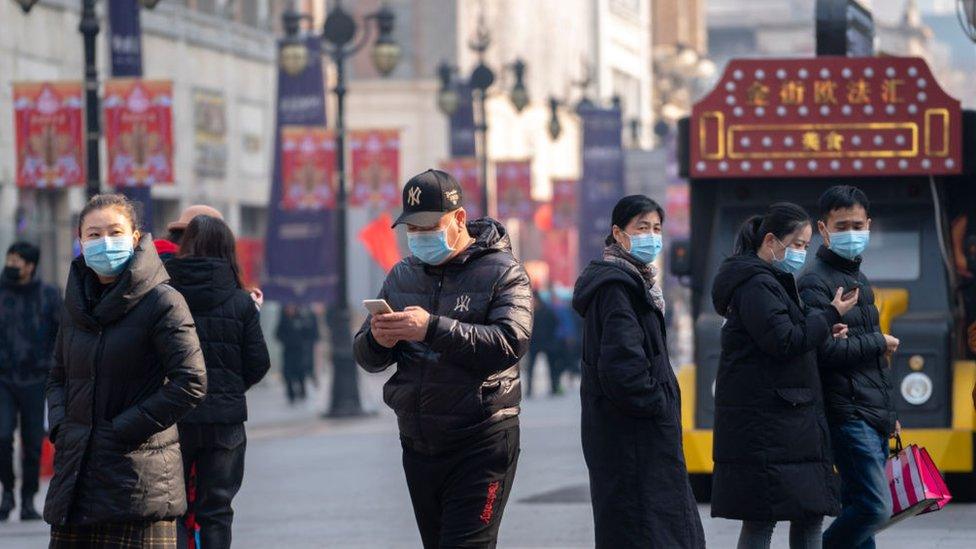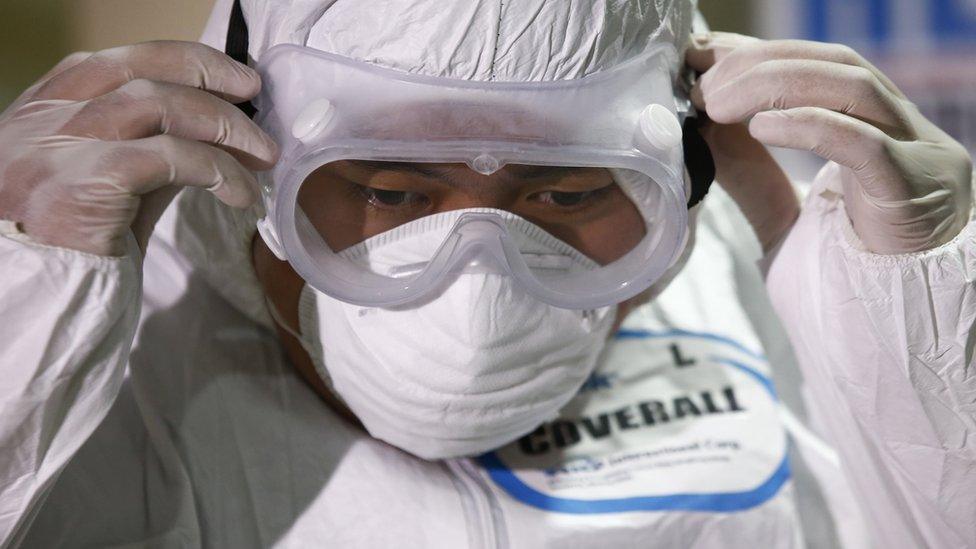Coronavirus: China to pump billions into economy amid growth fears
- Published

China urged citizens to wear face masks in public places during the spring festival
China is to pump a net 150 billion yuan ($22bn; £16.3bn) into its economy on Monday to help protect it from the impact of the coronavirus outbreak.
China's central bank said, external the move would ensure there was enough liquidity in the banking system and help provide a stable currency market.
The virus has so far infected more than 14,000 people and claimed 305 lives - all but one inside China.
The money will be deployed when China's markets reopen on Monday.
It comes after a holiday to mark the Lunar New Year was extended in the hope of reducing the spread of the virus.
Financial regulators in the country have said they believe the impact on China's already slowing economy will be "short term".
But analysts say the impact of the virus - which has left major cities in full or partial lockdown - could harm growth if it lasts for a prolonged period.
China's travel and tourism sectors have already taken a hit over an unusually quiet Spring Festival break, while cinemas were forced to close to try to contain the virus.
Meanwhile, numerous factories have suspended production while companies have instructed employees to work from home
Foxconn, Toyota, Starbucks, McDonald's and Volkswagen are just a few of the corporate giants to have paused operations or shuttered outlets across China.
Slowing economy
The country saw economic growth of 6.1% last year - the slowest in around three decades, in part because of its prolonged trade war with the US. A partial trade deal easing tensions was struck earlier this month, but most tariffs remain in place.
Economist George Magnus, associate at Oxford University's China Centre, told the BBC the size of central bank's injection reflected "policymakers' concerns about the state of the economy".
"The coronavirus repercussions on the economy mark the latest in a series of setbacks in the economy over the past year, including a handful of bank failures sparking contagion fears, forcing the central bank to become ever more generous with the provision of liquidity to markets."
In total, the central bank will inject 1.2 trillion yuan into the financial system on Monday - the largest single day addition on record.
The net figure will be considerably lower, however, although the bank said it could make more cash available throughout the week.
Braced for volatility
China's central bank has announced other economic measures in the face of a deepening coronavirus epidemic, including providing banks with 300 billion yuan to lend to affected companies.
Authorities have also relaxed tariffs on goods imported for use in the virus fight - including those from the US.
Investors are bracing for volatility when Chinese markets reopen on Monday. The country's stock, currency and bond markets have all been closed since 23 January and were due to reopen last Friday.
Global markets have been rattled by the epidemic, with the US S&P 500 notching up its worst week since October on Friday.

More on the coronavirus outbreak:
The BBC's online health editor on what we know about the virus
- Published2 February 2020

- Published22 February 2022
